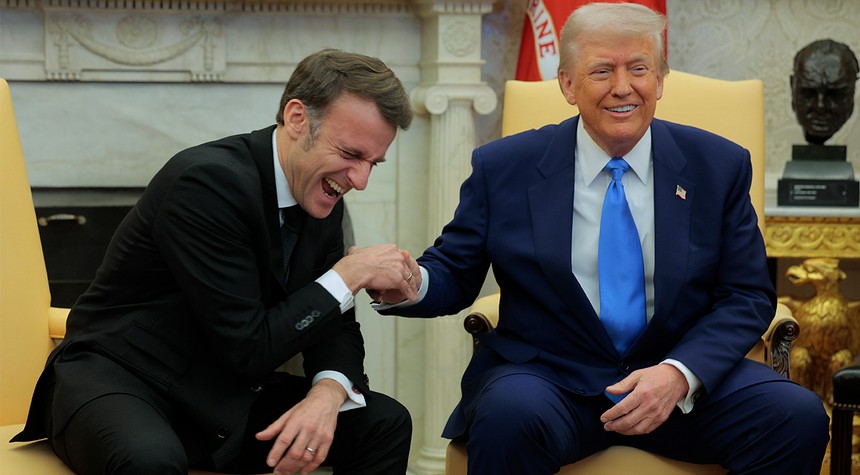Let us be clear about what is happening here. Emmanuel Macron is not simply engaging in diplomatic disagreement with the United States. He is actively working to undermine American interests while positioning himself as the leader of a supposedly independent Europe that can stand toe-to-toe with Washington, Moscow, and Beijing.
The facts speak for themselves.
While the United States has decided to boycott the 2025 G-20 leaders’ summit because South Africa is hosting, Macron is visiting Johannesburg. This is not merely a scheduling difference. It represents a deliberate choice to distance France from American foreign policy priorities.
Earlier this week, Ukrainian President Volodymyr Zelenskyy signed a deal with Macron to purchase 100 French Rafale jets instead of American-made fighters. Let that sink in for a moment. After the United States has provided nearly $180 billion in aid to Ukraine, including free aircraft, Zelenskyy is now choosing to spend Ukrainian money on French military equipment rather than American products.
Former Representative Mike Garcia, a U.S. Navy fighter pilot, put it bluntly: “Zelenskyy slaps the face of a nation that saved him. After receiving nearly $180 billion in American aid, including free aircraft, Zelenskyy turns to others when it’s time for Ukraine to actually pay for weapons systems.”
This is not just poor optics. It is a strategic betrayal facilitated by Macron’s push for what he calls European defense autonomy.
Before that, Macron recognized a Palestinian state at the United Nations General Assembly over explicit U.S. objections. President Trump accurately accused him of “honoring Hamas” with this move. During his U.N. General Assembly address, Trump stated, “As if to encourage continued conflict, some of this body is seeking to unilaterally recognize a Palestinian state.”
In June, Macron visited Greenland in what can only be described as a symbolic warning to Trump regarding his stated interest in the strategically vital island. Trump has repeatedly discussed the possibility of purchasing Greenland from Denmark, recognizing its wealth of oil and minerals and its critical Arctic defense positioning.
Here is the larger pattern: From the beginning of Trump’s first term, Macron believed he could manage the American president through flattery and personal diplomacy. He invited Trump to a red-carpet Bastille Day parade in Paris. For a time, Trump called the young French leader a “great friend.”
But Macron’s true intentions have become increasingly transparent. As Liana Fix, senior fellow for Europe at the Council on Foreign Relations, noted, “Macron has always seen himself in the European context as the leader of European defense efforts.”
The problem is that Macron’s vision of European power is built on a foundation of sand. Europe lacks the military capability, the economic dynamism, and the political unity to act as a genuine counterweight to the United States, China, or Russia. What Macron calls “Europe First” is actually “France First” dressed up in multilateral rhetoric.
As Trump reasserts “America First,” which is simply the logical position that American leaders should prioritize American interests, Macron is attempting to construct a European identity defined primarily by opposition to Washington. This is not leadership. This is posturing.
The reality is that European security still depends fundamentally on American military power and commitment. European prosperity still relies heavily on access to American markets and technology. And European unity remains a perpetual work in progress, constantly threatened by internal divisions.
Macron can travel to Johannesburg, sell fighter jets to Ukraine, and recognize Palestinian statehood all he wants. None of these actions change the underlying power dynamics of the international system. They simply reveal the gap between Macron’s aspirations and Europe’s actual capabilities.
Related: Federal Prosecutors Sought Two Years of Jordan Phone Data in January 6 Investigation

